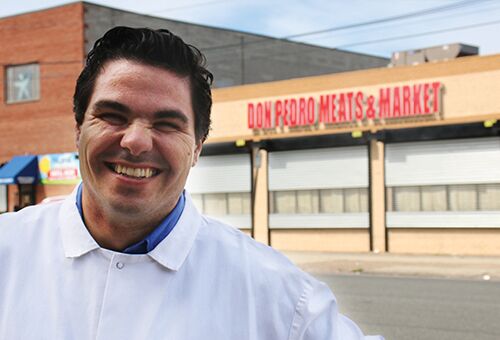Don Pedro, a woman/ meat market, caters to the local community, offering a wide variety of meats, fresh produce, and other grocery items. In the spring of 2017, the owner expanded the company from 2,000 sq. ft. to 8,000 sq. ft. by leasing a new facility. The small business struggled to access capital because the collateral value was lower than the debt. Our $1.1M loan funded costs of expansion, provided working capital, and refinanced a predatory short-term loan from an online lender charging 54% interest.
The company is projected to create 10 new FTE jobs, of which all but one will pay a living wage, and the store will accept approximately $320,000 worth of food stamps each year.
The new store opened in December of 2018.$1,100,000 for a woman/ meat market to relocate to a larger location. Includes tenant improvements, working capital, and equipment. (Philadelphia PA). $600,000 for tenant improvements for a mixed-use industrial/office/retail property. Tenants include a local developer (owner-operator) and a meat market. (Philadelphia PA) $600,000 for tenant improvements for a mixed-use industrial/office/retail property. Tenants include a local developer (owner-operator) and a meat market. (Philadelphia PA)


